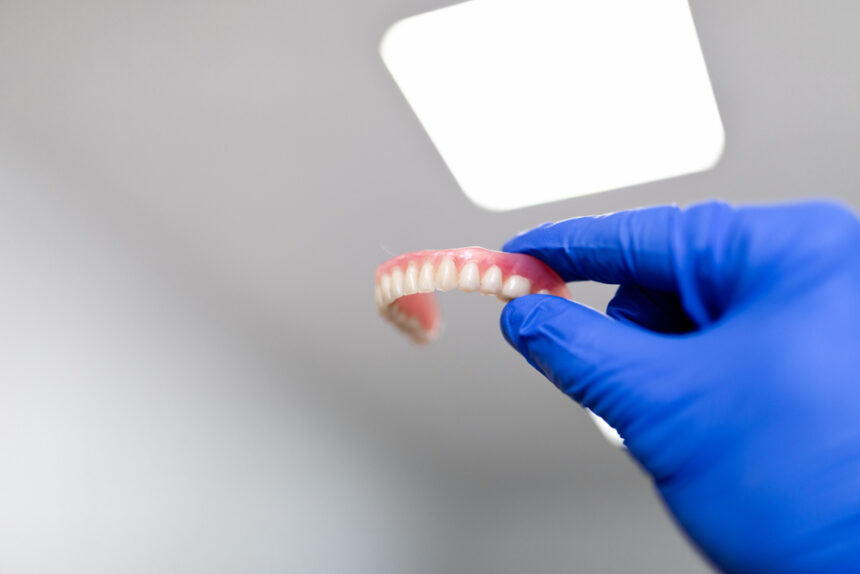When it comes to replacing missing teeth, two of the most common restorative solutions are dental bridges and dental implants. Both options are widely used in modern dentistry, but each comes with its own set of advantages and considerations. Understanding the differences between them can help you make an informed decision that best suits your oral health needs and lifestyle.
If you’re located in North York and looking for professional guidance, DentalX Downsview Dental Clinic is considered one of the top Dental Clinics in North York, offering comprehensive restorative treatments with a patient-first approach.
What Is a Dental Bridge?
A dental bridge is a prosthetic device used to “bridge” the gap left by one or more missing teeth. It typically consists of one or more artificial teeth (pontics) anchored in place by dental crowns attached to the adjacent natural teeth.
Benefits of Dental Bridges:
- Quick and less invasive procedure
- Provides immediate functional and aesthetic improvements
- Typically more affordable upfront than implants
- Doesn’t require surgery
However, the downside of dental bridges is that they rely on neighboring teeth for support, which may involve reshaping healthy teeth to accommodate the crowns. This can impact long-term oral health.
What Is a Dental Implant?
A dental implant is a titanium post that is surgically inserted into the jawbone to act as an artificial tooth root. After it has integrated with the bone, a crown is placed on top to mimic the appearance and function of a natural tooth.
Patients in North York can explore implant solutions at DentalX Downsview Dental Clinic, a trusted Dentist in North York providing state-of-the-art Dental Care in North York that includes both implants and bridges tailored to individual needs.
Benefits of Dental Implants:
- Long-lasting and durable solution
- Helps prevent bone loss and preserves facial structure
- Functions like a natural tooth
- Does not affect neighboring healthy teeth
Although implants require a more extended healing period and surgical placement, their longevity and stability make them a preferred choice for many.
Dental Bridge vs Implant: Key Differences
| Feature | Dental Bridge | Dental Implant |
| Procedure | Non-surgical | Surgical (implant placement) |
| Longevity | 5-15 years | 15+ years or lifetime |
| Impact on Other Teeth | Requires support from adjacent teeth | Independent, no effect on other teeth |
| Bone Preservation | Does not prevent bone loss | Stimulates and preserves jawbone |
| Aesthetics | Good, but may not match natural gumline perfectly | Highly natural appearance and gum integration |
| Maintenance | Similar to crowns, may require extra cleaning | Regular brushing and flossing, easy to maintain |
Which One Should You Choose?
Choosing between a dental bridge and an implant depends on several factors, such as:
- Bone density: Implants require sufficient bone to hold the post. If bone loss has occurred, bone grafting may be needed.
- Oral health: Healthy gums and adjacent teeth are essential for both options.
- Number of missing teeth: A bridge may be more practical for multiple missing teeth in a row.
- Budget and timeline: Bridges are usually quicker to place, while implants offer long-term value.
- Personal preference: Some patients prefer a non-surgical solution, while others opt for implants due to their permanence.
At DentalX Downsview Dental Clinic, your dentist will assess your specific case and help you determine whether a bridge or an implant is best suited for your smile.
Dental Implants in North York
If you are missing teeth and looking for a long-lasting, reliable solution, Dental Implants in North York are a highly recommended choice. DentalX offers cutting-edge implant technology and customized treatment plans, ensuring you receive the care you need in a safe and comfortable environment.
FAQs About Dental Bridge vs Implant
1. Are dental bridges or implants more durable?
Dental implants generally last longer than bridges, potentially for a lifetime with proper care. Bridges may need replacement after several years due to wear or damage.
2. Is the procedure for dental implants painful?
Implants are placed under local anesthesia, and most patients report minimal discomfort during the procedure. Recovery is usually manageable with over-the-counter pain relief.
3. How do I know if I’m a good candidate for implants?
A dental evaluation including X-rays will determine if you have enough bone density and healthy gums to support an implant. Medical history and oral hygiene are also considered.
4. Do dental bridges look natural?
Yes, dental bridges can look very natural, especially when made from high-quality materials. However, implants tend to offer a more lifelike result, especially at the gumline.
5. Can I switch from a bridge to an implant later?
Yes, many patients initially opt for a bridge and choose to upgrade to implants later. However, the longer a tooth is missing, the higher the chance of bone loss, which may require bone grafting before implant placement.
Conclusion
Both dental bridges and implants are excellent solutions for restoring your smile, but they serve different needs and come with unique benefits. A thorough dental consultation is the best way to decide which option is ideal for you.
Whether you’re leaning toward a bridge or an implant, [DentalX Downsview Dental Clinic] in North York provides expert care and personalized treatment plans to restore both the function and aesthetics of your smile. Their experienced team is committed to helping you make a confident, informed choice for your long-term oral health.


